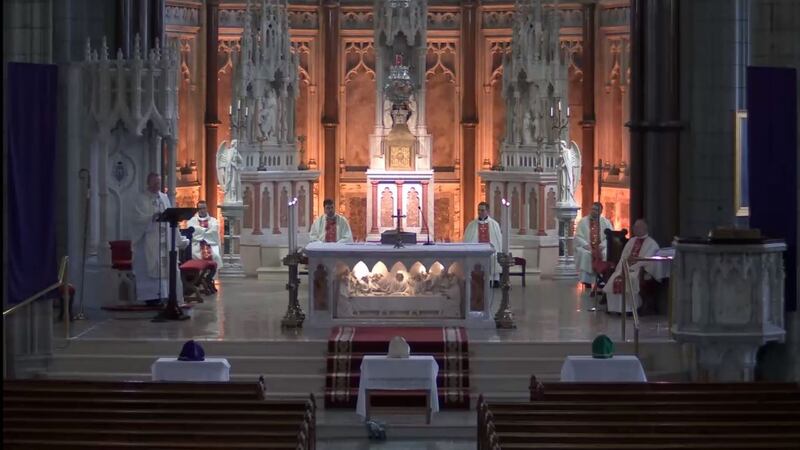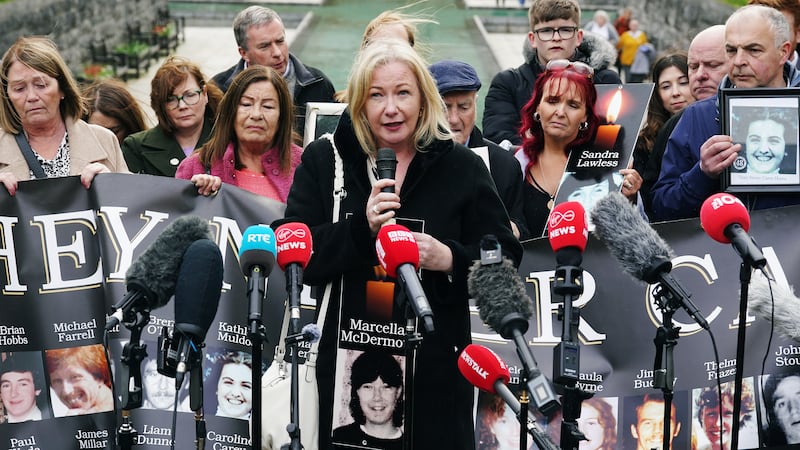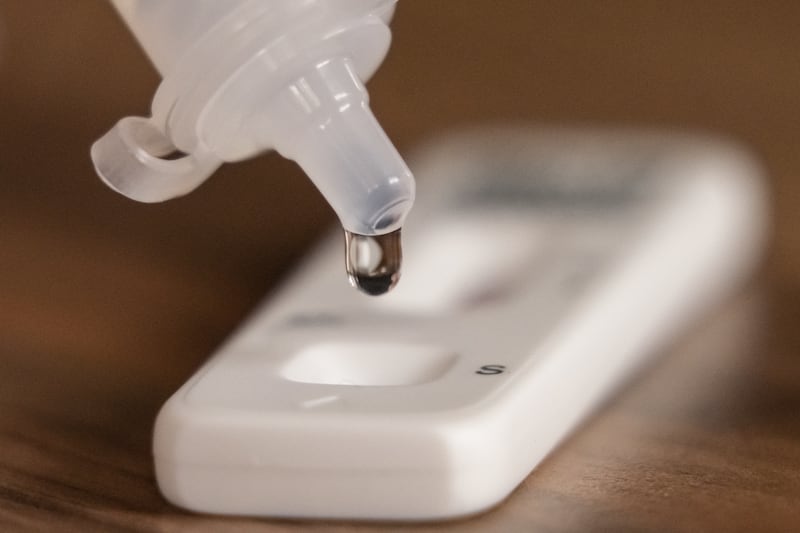PARISHES have been "flooding the digital highways" and crashing webcam live-feeds in response to the coronavirus-enforced closure of churches all over Ireland, with "millions gathering virtually" for Mass, Archbishop of Armagh Eamon Martin has said.
Dr Martin highlighted how much the Covid-19 pandemic had turned lives "upside-down in just a matter of weeks" but contrasted this with how adversity had also "brought out the very best in our people".
He was speaking as he celebrated Chrism Mass, an annual ceremony held during Holy Week in every Catholic diocese in which the bishop blesses the holy oils to be used in the coming year.
The Chrism Mass is regarded as a high point in the life of the Church and traditionally draws together large numbers of clergy along with diocesan representatives and lay leaders.
But the various restrictions introduced to slow the spread of coronavirus, which include social-distancing measures and the closure of churches for public worship, means that this week's Chrism Masses have had to break with that tradition, with only a handful of well-spaced out clergy involved.
"Covid-19 has driven our congregations indoors, forced us to stay apart, prevented us from having the public celebration of Mass and hindered us from offering the healing sacraments of reconciliation and anointing in the normal manner," said Dr Martin, speaking today in the Cathedral of Saint Patrick and Saint Colman in Newry in the diocese of Dromore, where he is Apostolic Administrator.
The virus had also forced schools to close, baptisms and marriage ceremonies to be postponed and "delayed the happiness of Confirmation and First Holy Communion days".
"It has heightened anxieties and fears amongst our parishioners and threatened their jobs and livelihoods," said Dr Martin.
"It has struck at the very heart of our ministry as priests, curtailing our normal outreach to the sick, the elderly and the dying.
"And perhaps saddest of all, it has cruelly restricted our capacity to draw close to families who are bereaved."
But amid the profound difficulties and upheaval, people had responded with remarkable positivity.
We've been flooding the digital highways with Eucharistic celebration and other prayer moments - so much so that we've crashed our 'live-feeds
"It is humbling for us to witness the generosity and care of so many members of our congregations who are working in hospitals, nursing homes and in other frontline services," he said.
"We are amazed at the loving response of our young people, sporting organisations, community groups and charities who are reaching out to the elderly, the lonely and the vulnerable - preparing cooked meals and fetching groceries, stocking food banks and offering messages of encouragement and hope."
The Archbishop said that while it was particularly heart-breaking that congregations could not gather to worship "during this most sacred of weeks", he was aware that people were "finding more quality time for family, and more space for stillness, reflection and prayer at home".
"Our parishes have taken to cyberspace like never before," he said.
"We've been flooding the digital highways with Eucharistic celebration and other prayer moments - so much so that we've crashed our 'live-feeds'.
"Our webcam providers report that millions of people across the country are gathering virtually for Mass each week, not to mention the many other prayer opportunities that are available via social media, radio and television."
Dr Martin, who celebrated Chrism Mass for the Archdiocese of Armagh on Wednesday, said that the "imposed monasticism" of the increased seclusion in which so many people are now living and working was "making us stop and think about the way we have been living our lives, about faith and hope, about caring and loving, and perhaps living simpler lives in the future".








